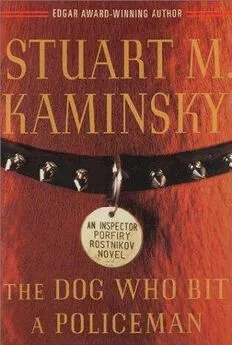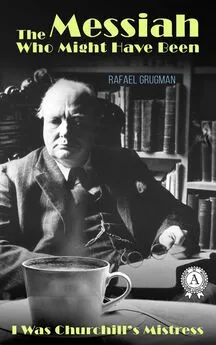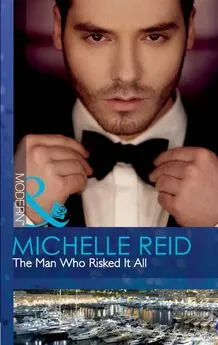Stuart Kaminsky - The Dog Who Bit a Policeman
- Название:The Dog Who Bit a Policeman
- Автор:
- Жанр:
- Издательство:неизвестно
- Год:неизвестен
- ISBN:нет данных
- Рейтинг:
- Избранное:Добавить в избранное
-
Отзывы:
-
Ваша оценка:
Stuart Kaminsky - The Dog Who Bit a Policeman краткое содержание
The Dog Who Bit a Policeman - читать онлайн бесплатно полную версию (весь текст целиком)
Интервал:
Закладка:
“You don’t know us,” said Iosef. “No offense has been taken.”
The search of Yevgeny Pleshkov’s office yielded little of any possible use-not even a hidden bottle of vodka, not a personal telephone book, no letters. The office hardly seemed used. The search was quick, made quicker by the hovering of Ivan Pleshkov.
“You are a basketball fan?” asked Iosef, giving up on his search and looking at the young man’s shirt with a cartoonlike design of the head of an angry bull.
“Yes,” said Ivan. “It is my goal to move to Chicago and buy sea-son tickets to all the Bulls games. It is my hope that I can do this before Michael Jordan retires. Getting work as a computer-program designer will be no problem.”
“Might it not affect your father’s political ambitions were his son to move to the United States?” asked Iosef.
“I’m sure it would,” said Ivan. “I do not hate my father, but he has taught me to care little about what happens to him. I hope you find him alive, but if you don’t, my mother will cope and I will move to America that much sooner.”
Ivan walked out the door to the office, with Zelach and Iosef behind.
“Thank you for your help,” Iosef said. “We will contact your mother as soon as we find him.”
When the two detectives were outside in the morning sun, Iosef took a deep breath.
“Well, Akardy?”
“I don’t like him,” said Zelach, who did not look forward to the half-mile walk and the train ride back to Moscow.
“The father or the son?” asked Iosef.
“Neither,” said Zelach.
“Understandable,” said Iosef, starting to walk down the road.
“I think it might be reasonable to add the mother to a list of the unlikable.”
“Ah, look, they have a car,” said Zelach. “He could have offered us a ride.”
“That would have been polite,” said Iosef with a smile. “But it is a nice day and this promises to be a relatively easy assignment.”
“Perhaps,” said Zelach, slouching along at the younger man’s side, “but this morning my mother got out of bed and accidentally touched her left foot to the floor instead of her right. She says I will have bad luck and should be careful.”
“You believe that?”
“Of course not,” said Zelach without conviction. “We shall find Deputy Pleshkov.”
“With luck we will find him during the day,” said Iosef. “If not, prepare yourself for little sleep tonight.”
When they were a few hundred yards down the road and had passed both newly constructed large dachas and crumbling little cottages, a Mercedes-Benz pulled up next to them and Ivan Pleshkov, who had changed into a plain white shirt with short sleeves, said through the open window, “You don’t have a car?”
“No,” said Iosef.
“I’ll give you a ride to Moscow,” he said. “I’m going there anyway. Get in.”
“Maybe your mother was wrong about which foot she touched to the floor first,” said Iosef, opening the back door.
Zelach didn’t think so.
Chapter Three
Rostnikov had returned to Petrovka and immediately reported to Yaklovev.
Pankov, the sweating dwarfish secretary who had survived Colonel Snitkonoy’s promotion and now served as secretary to the Yak, had ushered Rostnikov into the director’s office, as was his standing order. The only requirement was that the director was alone and that Pankov announced that Rostnikov was there to see him.
Pankov lived in constant fear of his superior. The slightest sign of disapproval or possible problems sent the clean-shaven little man of indeterminate age into a sweat, regardless of the heat or lack of it in Petrovka.
The meeting had been relatively brief, with Rostnikov standing in front of the desk of the Yak, who listened carefully to the early report on the new cases.
“Another report by the end of the day, or earlier if there are changes,” said the Yak, sitting erect. “I want the names of those involved in the dogfights, and I want Congress Member Pleshkov found as soon as possible-and I would like it done quietly.”
“I understand,” said Rostnikov, noting that the Yak did not seem particularly interested in the naked mobster found in the river.
“I’m sure you do,” said the Yak, looking up. “If you have more to report, you may sit. If not. .”
“The director of the forensics laboratory may be coming to you with a complaint about my turning his men away from a crime scene this morning,” said Rostnikov.
“The corpse in the river?”
“Yes,” said Rostnikov. “I have Paulinin examining the body.”
“Good,” said Yaklovev. “I will take care of it with an apology and by being my usual charming self. Anything else?”
“No,” said Rostnikov, and the Yak resumed the reading of a thick report before him, a clear sign of dismissal.
Rostnikov left the office, nodded at Pankov, and went to the stairs.
The relationship between Porfiry Petrovich and Director Yaklovev was completely symbiotic and beneficial to both men, though the Yak did not like Rostnikov and Rostnikov did not like the Yak. However, both men trusted each other and knew that, to a great degree, their futures depended on that trust. The Yak was corrupt but he was a man of his word, and Rostnikov was reasonably confident that when the time inevitably came that the director felt he had to betray his chief inspector, the Yak would inform Rostnikov that it was coming.
Instead of going back to his office, Rostnikov went down four flights. The last two flights were underground. There was no one in the corridor, so Rostnikov leaned against the wall, taking all of his weight on his good leg. Four flights down had resulted in a slight soreness where the artificial leg connected to Rostnikov’s leg just below the knee.
“Leg,” he said. “We have been through far worse. It is time to stop grieving over the loss of an old friend who had to be dragged around like a child’s wagon. Ah, that’s better.”
Rostnikov opened the door to Paulinin’s laboratory and entered to find Emil Karpo watching Paulinin carefully examine the white body, which lay upon the table. The body had been cut from neck to groin and peeled open, exposing the organs, only one of which Paulinin had yet removed. The scientist was slicing the corpse’s liver on what looked like a restaurant meat slicer.
“ Kofyeh, coffee?” asked Paulinin, white surgical gloves reddened with blood.
“I thank you, but I have just had several cups,” said Rostnikov.
“ Nyet spahssebah, no, thank you,” said Karpo.
Paulinin’s eyes didn’t leave the mechanism, which slid back and forth with a smooth metallic sound. Rostnikov and Karpo stood silently watching till Paulinin had had enough and turned off the machine. He turned to Rostnikov, eyes wide, smile small, and said,
“New toy, the slicer. You know what a pathology slicer costs?
Never mind. You can’t get one even if you have the money. But this is better. I got it for some of those new rubles. I can’t be bothered keeping up with what they are worth. At least the new ones are bright. Where was. . oh, the slicer was purchased from a restaurant, the Cosmos on Gorky Street. It was cheap and it works better than the surgical ones I’ve seen. It slices just as thin and if you keep the blade sharp, as I do, there is no tissue and little cell damage.”
“Interesting,” said Karpo.
“Yes, and had you given the corpse to the bumblers who pass themselves off as pathologists, they would have concluded that our dead friend was told to strip, shot to death in the middle of the night on the riverbank, and shoved into the water.”
“He wasn’t?” asked Rostnikov, knowing that the man wanted, needed appreciation.
“He was not,” said Paulinin, rising and putting his right hand on the shoulder of the corpse. “Our friend drowned. He is a quite amazing creature. He was shot three times, any wound of which would have caused his death in a short time, except the wound to the head. That went around the cranium and lodged at the back of his brain. Relatively little damage. His lungs were filled with water, but not water from the Moscow River. No, the water in his lungs is clean and filled with chlorine. He died in a swimming pool after he was shot. See these bruises on his rear and back? Whoever did this was very strong, or it was more than one person. Our friend here weighed about two hundred and forty-eight pounds. He was dead weight and in a pool would be even more of a dead load.”
Paulinin raised the body so that the two detectives could see.
“Those occurred after death. Whoever pulled him from the pool put him in some kind of vehicle-a cart, a wheelbarrow-something wooden and painted white. There are splinters, small but de-tectable. The bruises came during transport of our friend. And though the traces are almost infinitesimally small, when he was transported he was covered by something made of blue terry cloth, probably an oversized bath towel. Pieces of the material are in the blood and around the edges of the gunshot wounds. There was probably a lot more, but the corpse was in the river for seven or eight hours before we pulled him out. He died last night, probably late. Next. .”
Paulinin released the corpse, which slumped back with a thump, removed his gloves with a snap and threw them into an almost full garbage can.
“Next,” he said, “the bullets. Perhaps the most interesting part of what appears to be a puzzle. They are forty-four caliber, fired from a well-preserved but very old weapon, which suggests. .?”
“That he was probably not shot by a Mafia member, or that, if he was, the use of such a weapon carries some specific meaning,”
said Rostnikov.
“Precisely,” said Paulinin, looking down at the face of the corpse. “Now you must leave. I have to talk with our friend’s liver and other organs. I’ll tell you more soon.”
Rostnikov and Karpo went into the empty corridor and let the heavy door to Paulinin’s laboratory slam shut.
“The dead man is Valentin Lashkovich,” said Karpo. “He is known as Shtopahr-‘Corkscrew’-a simple-minded killer for the Tatar Mafia. He is suspected of at least nine murders, but has been arrested for only one and released when the judge said there wasn’t sufficient evidence.”
“But there was?”
“Yes,” said Karpo.
“So, many people may have wanted Lashkovich dead?”
“Many,” said Karpo. “The obvious conclusion, were it not for the bullets used to kill him, is that he was killed as part of an on-going war between the Tatars and the Chechins. Three others, two Chechins and one Tatar, one shot in a hotel health club, one in a hotel exercise room, and one in a hotel swimming pool.”
Rostnikov knew this but listened attentively and then said, “And the weapon used?”
“The bullets were neither examined nor kept,” said Karpo. “The deaths were ruled as casualties of a Mafia dispute-a dispute, I wish to add, that may well grow larger when the Tatars learn of this murder. If they do not already know.”
“So, Lashkovich was murdered in a swimming pool,” said Rostnikov. “But why was his body thrown in the river?”
“To disassociate the crime from yet another hotel health facil-ity,” said Karpo.
“Yes,” said Rostnikov. “Which suggests?”
“That the killer is somehow associated with hotel health clubs.”
“Or that such a location has special meaning.”
“And then there is the question of why such an old weapon was used. Definitely not a Mafia gun of choice.”
“It is intriguing, Emil Karpo.”
Читать дальшеИнтервал:
Закладка:










